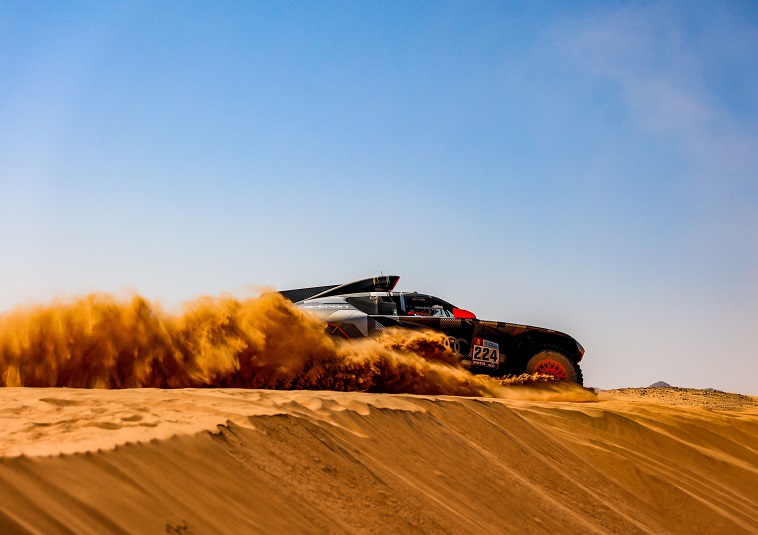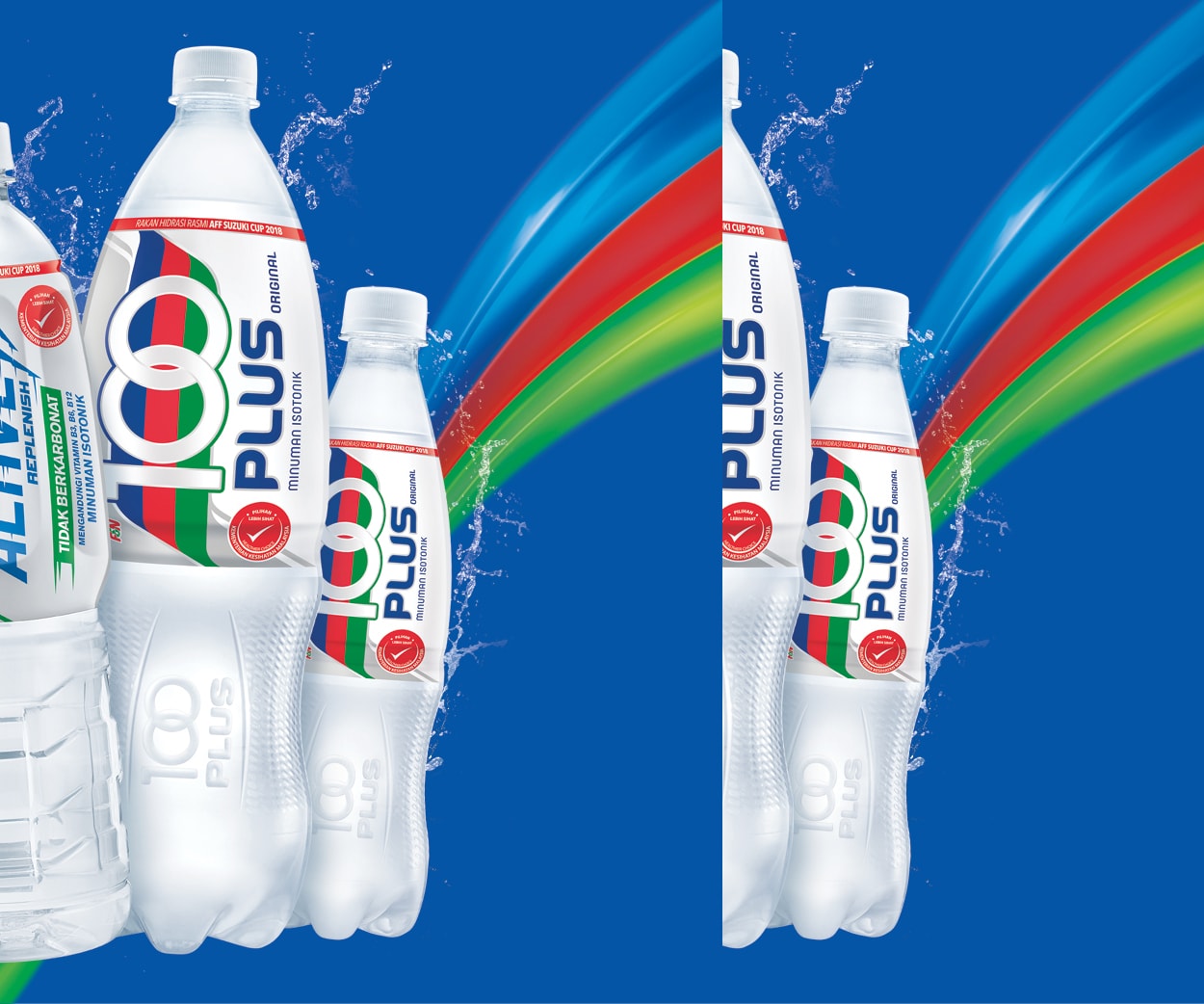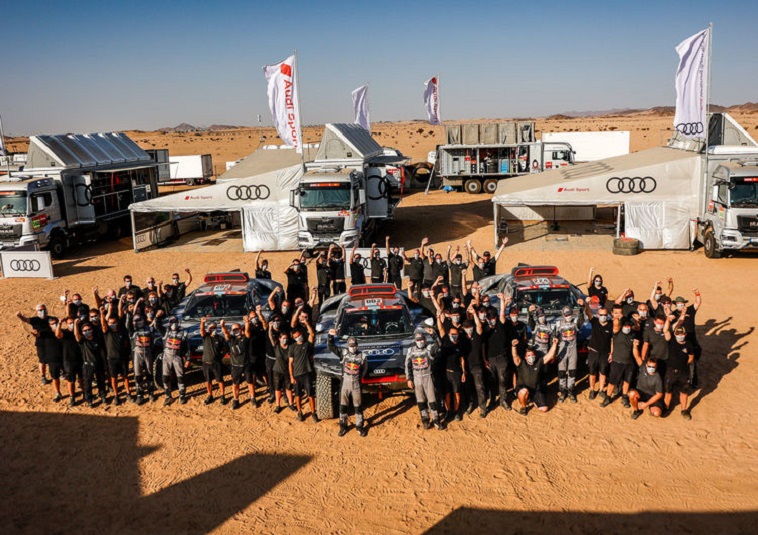| Stéphane Peterhansel, the record winner with 14 Dakar victories, summed up the enthusiasm the drive inspires: “I’ve driven many concepts in the desert but the Audi RS Q e-tron is simply sensational in the dunes. The electric drive with its good torque perfectly suits my driving style.”
The Frenchman, who competed with his compatriot Edouard Boulanger, won the tenth stage with the Audi RS Q e-tron. This means he has already decided 82 Dakar stages in his favor in his career. However, early damage left last year’s winners no chance of a good overall position this time: The accomplished driver hit a stone on the second stage that destroyed the rim and caused consequential damage to the suspension.
After the repair, he received a time penalty for exceeding the maximum stage time, which dropped Peterhansel to the back of the field. From this point on, the driver crew consistently put themselves at the service of the team and helped their teammates.
Carlos Sainz benefited directly from this, for example during the repeated shock absorber changes on stages four to six. The Spaniard, navigated by his compatriot Lucas Cruz, already made history on the third stage. Sainz clinched the Audi RS Q e-tron’s first stage victory on the demanding route from Al Artawiya to Al Qaisumah. Eight days later he managed his second stage victory. “Especially in the second half, the tracks were typical Dakar, namely very varied and demanding with a mixture of off-road tracks, small and large dunes and difficult orientation,” said Sainz.
“With our engineers, we improved the set-up of the car more and more over the course of the rally. A big thank you to everyone for that.”
 The successful Spaniard, a two-time World Rally Champion and with three Dakar victories under his belt, was left without a chance in the overall standings this time despite the good individual results. The successful Spaniard, a two-time World Rally Champion and with three Dakar victories under his belt, was left without a chance in the overall standings this time despite the good individual results.
As early as on the second day an inaccurate roadbook led to many navigation errors throughout the field. Carlos Sainz/Lucas Cruz therefore lost 2:22 hours and in the end finished in twelfth position.
In the same place, Mattias Ekström and co-driver Emil Bergkvist also lost 1:45 hours in their search for the right track. The two Swedes, who were only competing for the second time and in the car category for the first time, were pleased to have made great learning progress.
“My teammates gave me lots of tips,” said Ekström, a two-time DTM champion and World Rallycross Champion.
“I have found a better and better rhythm. The dunes remain my big challenge. Stéphane and Carlos have many years of experience advantage there. I always stayed on the safe side and didn’t attack too hard.”
The fact that the team with the least desert experience of all achieved the best result was a nice reward for their hard work. Day after day, the Scandinavians improved from 23rd to ninth position. With their stage 8 win and two other top three results, they proved their steady progress in a discipline where experience counts more than in other types of motorsport.
Team Audi Sport realized the preparation and successful operation in cooperation with Q-Motorsport. Sven Quandt’s squad has a Dakar experience of several decades. “I am grateful to Audi for allowing us to realize this ambitious project and to have achieved these results together right from the start,” said Sven Quandt, Managing Director and Team Principal Q-Motorsport.
“Our driver teams won four stages and clinched a total of 14 podium results in the daily classifications. This clearly exceeds our expectations for the first Dakar participation,” says Julius Seebach, Managing Director of Audi Sport GmbH and responsible for motorsport at Audi.
“A big thank you for this and respect to the team on site, but also at home in Germany. Thanks also to Sven Quandt and his team for their valuable support. The historic victory of Carlos Sainz with the Audi RS Q e-tron as early as on the third day is the reward for this hard work and underscores the concept’s ability to win.
Audi is thus the first team to achieve a stage victory with an electric drive concept. This is the result of an excellent team performance. After this performance already in the first year, overall victory at the next Dakar is clearly our goal. Back in Germany, we’ll take stock, further optimize our Audi RS Q e-tron and field it in several races. |
 Oliver Hoffmann, Board Member for Technical Development: “Pioneering role fulfilled”
Oliver Hoffmann, Board Member for Technical Development: “Pioneering role fulfilled”


































